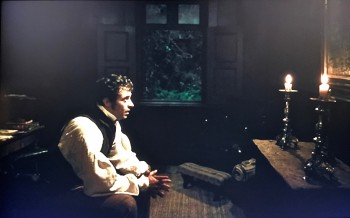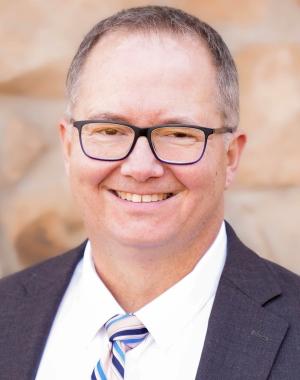“Who am I? 24601!!”
So sings Jean Valjean in the epic musical Les Miserables. This public confession of his hidden identity as a wanted convict, an identity he now only reveals to save a man who had been falsely accused, is fraught with raw intensity. It is the defining victory of a ferocious inner struggle, fought within the confines of his deeply conflicted conscience.
For anyone interested, I recommend the chapters describing this conflict in Victor Hugo’s original written masterpiece. The moral struggle Jean Valjean is faced with is as complex as it is dire, with much hanging in the balance.
The reader begins to intuit—in traveling the winding turns leading to this penultimate moral decision—that the truth of what Jean Valjean must do is not subjective. It is, rather, a truth outside of himself that he must struggle to see and then do. He must bring to bear all his personal striving for virtue and goodness, if he is to see clearly through his fear and will the true good. Will it, he does, as he stands tall and gently says, “Gentlemen of the jury, order the prisoner to be released! Mr. President, have me arrested. He is not the man whom you are in search of; it is I. I am Jean Valjean!”[i] In obeying the judgment of his conscience, which lucidly reflects the true good in this situation, Jean Valjean finds solace in his fear and an inner freedom never before known.
The fathers of Vatican II wrote beautifully concerning the human person: “Deep within his conscience man discovers a law which he has not laid upon himself but which he must obey. Its voice, ever calling him to love and to do what is good and to avoid evil, sounds in his heart at the right moment… For man has in his heart a law inscribed by God…” (Gaudium et Spes, 16). Many today mistakenly identify their emotions or instincts to be the voice of conscience and tragically lend apparent infallibility to these frequently mistaken inner impulses. On the contrary, moral conscience “bears witness to the authority of truth in reference to the supreme Good to which the human person is drawn” (CCC, 1777).
There are several excellent articles in this issue offering important detail regarding what conscience is and what it is not—and how it operates to the good of the individual and society. I would like to emphasize here two abilities that catechists must teach that are necessary to the proper operation of the conscience.
First, each person must know how to take upon himself or herself the responsibility of forming the conscience according to the “authority of truth.” As the U.S. Bishops wrote in our national Catechism, “A good conscience requires lifelong formation. Each baptized follower of Christ is obliged to form his or her conscience according to objective moral standards.”[ii] This is an obligation that is embraced by the disciple, who holds fast to the Master’s words, “if you love me, you will keep my commandments” (Jn 14:15). True disciples, with humility, subject themselves and their moral decision making process to the light of Christ, knowing that sin obscures, confuses, and warps the ability to clearly see the good and to choose it.
Second, the Catechism explains that choosing what our well-formed conscience dictates presumes we are able to focus ourselves intently in discerning the quiet, inner voice of our conscience. “It is important for every person to be sufficiently present to himself in order to hear and follow the voice of his conscience. This requirement of interiority is all the more necessary as life often distracts us from any reflection, self-examination or introspection” (CCC, 1779). Such a developed interiority and inner reflectiveness is depicted well in the struggle of Jean Valjean. St. Thomas More also spent hours on his knees, conducting his own inner search for truth in a precarious and dangerous series of decisions. The great Augustine put it this way: “Return to your conscience, question it…Turn inward, brethren, and in everything you do, see God as your witness.”[iii]
As catechists, we are privileged to assist learners into the joy of life lived in accord with the true good. We can stir up in them a desire for the goodness of Truth, so that they continue to refine their consciences, even as they are tested. Additionally, we can help them develop their interior lives, so necessary to a life lived in Christ. Rooted in a relationship with the One who is true goodness, we find the way to peace, true freedom, and lasting joy.
Dr. James Pauley is Associate Professor of Theology and Catechetics at Franciscan University of Steubenville.
Notes
[i] Victor Hugo, Les Miserables (San Diego, CA: Canterbury Classics, 2012), 251.
[ii] USCCB, United States Catholic Catechism for Adults (Washington: USCCB Publishing, 2006), 314.
[iii] St. Augustine, In ep Jo. 8, 9: PL 35, 2041 as cited in CCC, par. 1779.
Art Credit: Screen shot photo of Les Miserables, Universal Studios 2012.
This article orignally appeared on page 5 of the printed edition.
This article is from The Catechetical Review (Online Edition ISSN 2379-6324) and may be copied for catechetical purposes only. It may not be reprinted in another published work without the permission of The Catechetical Review by contacting [email protected]


















